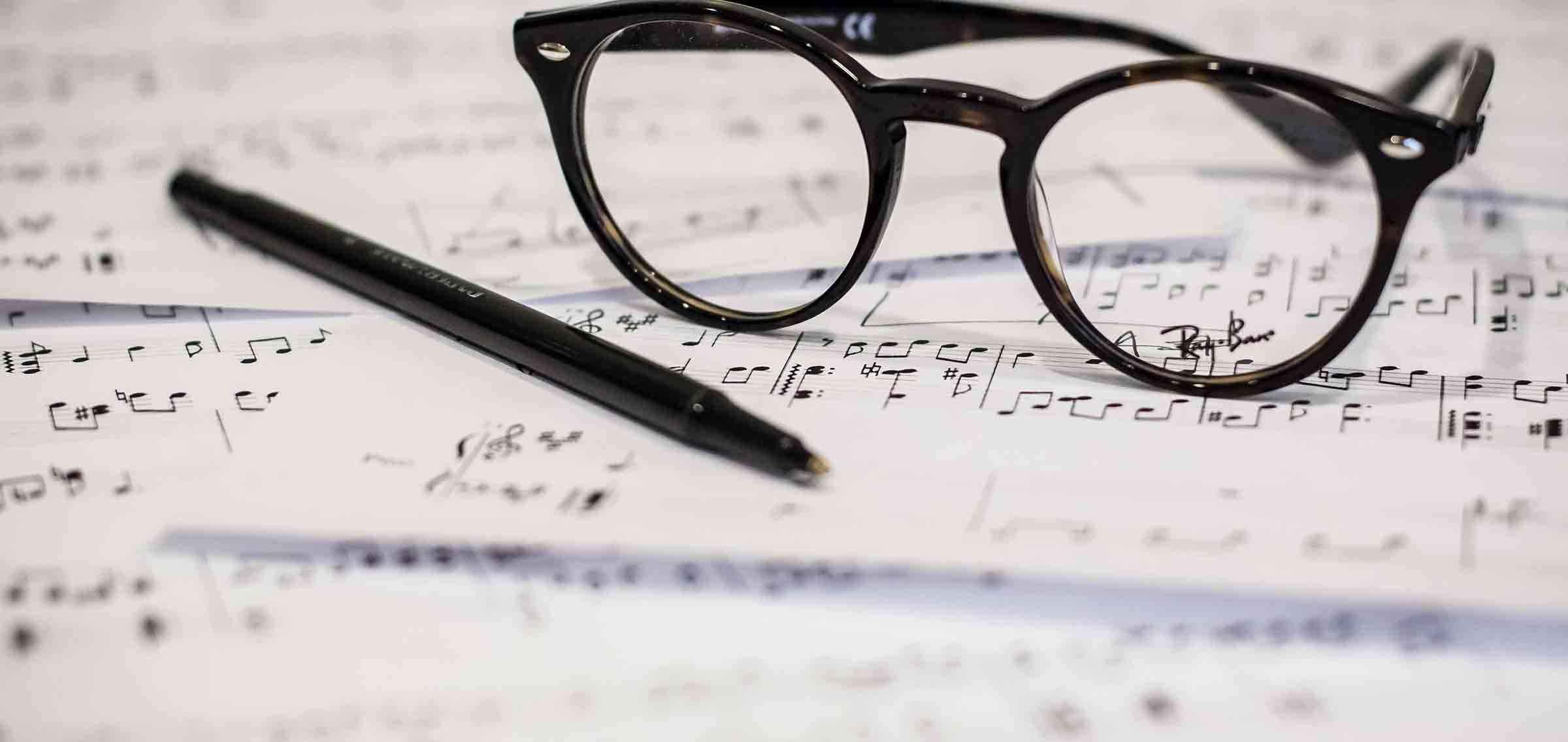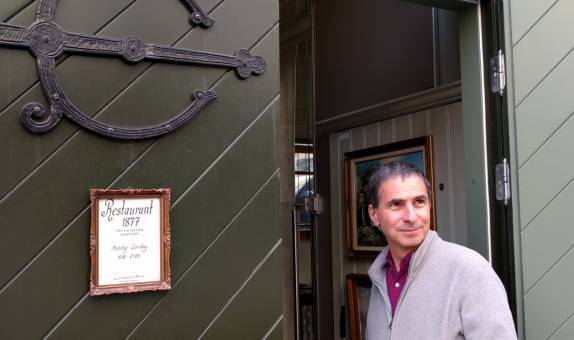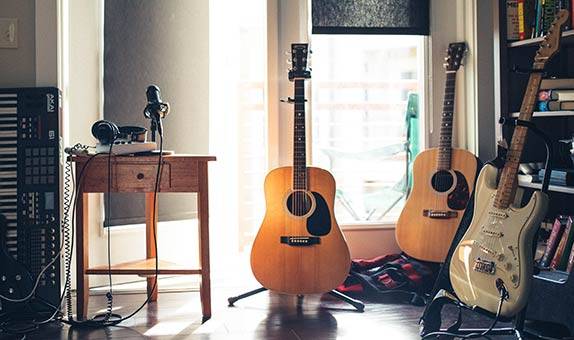Music Education MA
Why choose this course?
If you already work as a music educator, or seek to become one, this course will develop and enhance your skills as both a practitioner and researcher. You will have the opportunity to study major issues in international music education and the UK system of music education, research and practices.
You will develop and implement a teaching and learning project within an educational setting and the Kingston community. Your research project will take the form of a dissertation. You will receive guidance from a specialist tutor and be taught research, project planning and development skills.
| Mode | Duration | Attendance | Start date |
|---|---|---|---|
| Full time | 1 year | Day and evening |
September 2024 September 2025 |
| Full time | 2 years including professional placement | Day and evening plus placement year |
September 2024 September 2025 |
| Part time | 2 years | Day and evening |
September 2024 September 2025 |
| Main Location | Kingston Hill |
Reasons to choose Kingston University
- You will be engaged with London schools and community music settings.
- You may enhance your performance skills by participating in a University musical ensemble or form your own.
- Facilities include recording studios, rehearsal rooms, a synthesis/sampling lab and the analogue/digital hybrid Visconti Studio, which has a 300m² live room and rare and vintage recording equipment.
The Art School Experience
As part of Kingston School of Art, students on this course benefit from joining a creative community where collaborative working and critical practice are encouraged.
Our workshops and studios are open to all disciplines, enabling students and staff to work together, share ideas and explore multi-disciplinary making.

What you will study
Your core studies will encompass key research and practice issues in music teaching and learning.
Through devising, delivering and evaluating your music education research project, you will develop and enhance your skills as both a practitioner and researcher. Alongside this you can choose from a variety of option modules and develop new skills to exploit in your own teaching.
You'll need to take all four compulsory modules, totalling 150 credits. You can then choose a further 30-credit optional module, to form a total of 180 credits.
Modules
Optional placement year
The core modules will develop your research, project planning, teaching and development skills in preparation for your major project, while receiving guidance from a specialist tutor.
The curriculum is enriched by our eclectic view of musical styles and genres, exploiting the diversity of a repertoire that encompasses Western classical music, popular and world music.
Core modules
Constructing Music Education in the UK
30 credits
This module examines the diversity of practice associated with school-based music provision in the UK maintained sector and associated research. Current positions concerning universal entitlement to the subject will be explored and traced back to influential antecedents. You will formulate a critical response to course themes by designing a short investigation exploring the complex transactional character of pedagogy which typifies music lessons across the UK. It will be located in a school if possible, supported by DBS checking (and if necessary, ethics clearance), or alternatively, will be based on student peer teaching.
International Music Education: Psychology, Culture and Philosophy
30 credits
The module is core for MA Music Education and is offered as an option for the MA Music and other MMus programmes. The module will consider the psychological processes that underpin musical understanding; interpersonal communication; the social construction of meaning and how such processes contribute to the educational philosophies of world cultures. There will be opportunities to investigate the philosophies and practices in music education in a variety of cultural and international contexts including the UK and those of the students themselves.
Major Project
60 credits
This module supports the development of a major piece of research, or creative work, or performance which is focused on the subject of the student's programme of study. Therefore the nature of the project is chosen from the following: a dissertation; a folio of produced popular music compositions/covers; a folio of sonic arts work; a folio of compositions to moving image; a folio of compositions; or a performance. In the case of the creative work, students will also undertake related research which culminates in a paper or critical commentary to complement and support their creative work. The module is taught through a mixture of seminars and individual tutorials.
Researching Music
30 credits
Researching Music is designed to prepare students for their research and writing on the Music Masters' programmes. The teaching covers academic referencing, creating a bibliography, library skills, use of research on-line indices such as RILM, writing skills, and approaches to research. Later in the module research seminars will be given by Kingston and visiting researchers/composers/performers which provide opportunities for student discussion on a variety of issues in current music research. The module is assessed through a folio of written work including an extended annotated bibliography, an extended research paper and an online forum.
Optional modules (may vary from year to year)
Advanced Production of Popular Music
30 credits
This module gives you a deep and thorough understanding of the processes and techniques involved in recording and producing popular music. It will look at a range of recording techniques and provide you with the opportunity to gain fluency in operating a recording studio. The role of the producer in creating, developing, managing and presenting a recording project will be studied, and students will be equipped with the faculties to produce work that demonstrates creativity and is of a professional standard.
Topics covered will include microphone techniques, digital recording and editing techniques, advanced sequencing, mixing and mastering techniques, creating arrangements and communicating with artists and session musicians, investigating genre-specific production techniques, and analysing contemporary and historical recordings. You will also look at the relationship between the producer and the recording and media business. You will be trained to critically evaluate your own work and position it in the context of the wider music and media business environment. You will use these techniques and skills to create a portfolio of short recordings, accompanied by a commentary detailing the techniques employed, and to develop and present a recording project, with supporting documentation.
Composing and Marketing Popular Music
30 credits
The module is designed to give you a deep and thorough understanding of the processes and techniques involved in popular music composition, and to equip you with the faculties to produce work of a professional standard. You will learn compositional techniques applicable to a range of popular music genres and will employ these to enhance your own personal style and create a portfolio of compositions. The nature of the creative process, how collaborators (co-writers, band members) communicate with each other and with other artists, and how popular music terminology and notation is utilised will be discussed. The position of the songwriter and popular music composer within contemporary society and the wider music and media business will also be examined.
This module will also explore strategies behind the manufacture, marketing, distribution and sale of popular music from a global perspective. You will examine music industry models in an historical context, exploring how practices are evolving through the advent of digital technology. You will explore the factors driving this change with critical appraisal of methods used. Topics covered will include the structure of major and independent record labels, management strategies, identifying a target audience, publicity and marketing within different territories, financing, choice of formats, music video, new media, the live industry, going it alone and the value of popular music as a commodity. You will be assessed on a portfolio of work including a project that demonstrates the marketing and promotion of one of their popular music compositions.
Critical Reflection on Musical Performance
30 credits
This module is core for MMus Performance and is offered as an option for other MA and MMus programmes. The module will address the development of critical and aesthetic insights into both the substance of music and the varied practices of performance required to deliver high quality musical experiences across a range of genres. It considers performance roles, values and practices including issues of meaning in music and emotional responses to music. It will trace the development of aesthetic attitude theories and post-structuralist approaches to understanding and performing a wide range of musical repertoires. Themes explored will include: issues of authenticity, value judgements, virtuosity and the role of the performer. Themed lectures will introduce topics, followed by seminars which will provide opportunities for students to reflect and discuss issues raised in lectures, which are then consolidated in debates that relate ideas to specific texts, repertoires and personal performances. Assessment will be through prepared debates, on topics suggested by the tutor, a critical reflection of a filmed performance and an essay on a related topic selected from a choice provided by the tutor.
Music and Technology in Education
30 credits
You will examine music pedagogy and the use of specialist and inclusive technologies at different phases of education (early years, primary, secondary, FE), in diverse settings and across genres. Content draws from aspects of the psychology of music and didactics and will include specific approaches to the teaching of composition, performance and music production using studios and DAWs. You will either gain experience in a work placement or take the opportunity to research and develop new ways in which music and technology can be used for education, play, therapy and/or enhanced accessibility in a specified setting.
Performance Studies
30 credits
This module is core for MMus Performance and is offered as an option for other Level 7 Music programmes. The module will address the practical issues of preparing and delivering a musical performance. Individual lessons will provide expert tuition on the students' instrument. Practical workshops will provide feedback on a range of technical, interpretational and presentational issues and lectures will prepare students for the written elements. Assessment will be through a recital of 20 minutes duration, a portfolio of promotional and presentational materials for the recital and a critical self evaluation of the performance itself.
Many postgraduate courses at Kingston University allow students to do a 12-month work placement as part of their course. The responsibility for finding the work placement is with the student; we cannot guarantee the work placement, just the opportunity to undertake it. As the work placement is an assessed part of the course, it is covered by a student's Student Route visa.
Find out more about the postgraduate work placement scheme.
Please note
Optional modules only run if there is enough demand. If we have an insufficient number of students interested in an optional module, that module will not be offered for this course.
Entry requirements
Teaching and assessment
This course includes two dedicated music education modules encompassing current issues, practices and research from a UK and international perspective.
You will develop and implement a teaching and learning project within an educational setting and the Kingston community and undertake a substantial research project on a topic of your choice.
You have the opportunity to develop and enhance your skills as a practitioner by devising, delivering and evaluating a music education project.
Assessment is primarily through written and other assignments that will help you hone your presentation and analytical skills.
Who teaches this course?
Postgraduate students may also contribute to the teaching of seminars under the supervision of the module leader.
Fees for this course
Additional costs
Depending on the programme of study, there may be extra costs that are not covered by tuition fees which students will need to consider when planning their studies. Tuition fees cover the cost of your teaching, assessment and operating University facilities such as the library, access to shared IT equipment and other support services. Accommodation and living costs are not included in our fees.
Where a course has additional expenses, we make every effort to highlight them. These may include optional field trips, materials (e.g. art, design, engineering), security checks such as DBS, uniforms, specialist clothing or professional memberships.
Facilities
Music courses at Kingston University are designed to provide a mixture of practical, theoretical and academic learning, with the main focus being on creativity through composition or performance.
We are not genre specific – you will study a broad range of music.
Our proximity to London means that, alongside Kingston's excellent facilities, you can also benefit from easy access to the capital's musical resources.
After you graduate
You will graduate prepared for a career in music education, and for progression to a management role. This course is also excellent preparation for further study, such as PhD programmes. Recent graduate destinations for this course include a wide range of educational settings in the UK and around the globe as well as in further teacher education programmes including PhD study and PGCE.
The high level of research and transferable skills you acquire during your studies also makes careers in the wider commercial and business environments available to you.
What our students say
Research areas
Research in music encompasses creative work with a broad range of styles and methods as well as theoretical-analytical research into musical practices.
Course changes and regulations
The information on this page reflects the currently intended course structure and module details. To improve your student experience and the quality of your degree, we may review and change the material information of this course. Course changes explained.
Programme Specifications for the course are published ahead of each academic year.
Regulations governing this course can be found on our website.










